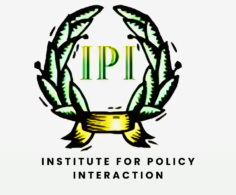Focus Areas
Towards an Egalitarian Society
IPI’s focus has been supporting enhancing government accountability through effective oversight mechanisms and improving service delivery to the people.
Thus, in pursuit of the vision of a democratic developmental state as in Malawi Vision 2063, IPI shall continue to forge ahead in the areas of:

Strengthening Democratic Institutions
In Strengthening Democratic Institutions, IPI took a prominent stand against the attempt to extend the presidential term limit and other attempts to tamper with the Constitution and dilute the spirit of Constitutionalism.
A) In collaboration with Prof. Michael Wahman of Michigan State University, IPI conducted Parliamentary Candidates Survey in 2019.
B) IPI conducted voter and civic education activities and election monitoring in all the elections from 2004 to 2019 in collaboration with Malawi Electoral Commission, local CSOs, National Democratic Institute and the National Initiative for Civic Education (NICE).
C) The institution has published books on the 2014 and 2019 general elections in collaboration with the National Initiative for Civic Education (NICE).
D) IPI’s engagement with Parliament has been through the parliamentary committees on national issues publication of a parliamentary observer report for 2005 – 2008 with support from the Institute for Federalism, Fribourg, Switzerland.
E) With help from the GTZ Forum for Peace & Dialogue, IPI conducted sessions on building bridges between Parliament and civil society.

Policy Research, Advocacy and Citizens’ Engagement
In the focus area of Policy Research, Advocacy and Citizens’ Engagement, IPI has been engaged in Natural Resources Governance and Climate Change Action Plans. IPI has been conducting studies on Extractive Governance in Malawi to ensure that natural resources are used responsibly and sustainably.
A) With support from AFRODAD, IPI conducted legal and policy analysis on the Extractive Governance in Malawi, especially in the Mining Sector, where in 2013, it influenced the revision of the Mines and Minerals Act of 1981 through its study on Kayerekera.
B) IPI has also promoted climate change action, mitigation and adaptation with local and international partners through research and advocacy.
C) IPI undertook forestry governance, environmental management and recycling in the Phalombe district with support from the Democracy Consolidation Program from 2011 to 2018.
D) IPI has also worked with International Alliance on Natural Resources in Africa (IANRA) on localising the African Mining Vision and revising the Mines and Minerals Act in 2018.

Promoting Cohesion, Dialogue and Peace
In Promoting Cohesion, Dialogue and Peace, IPI, in collaboration with an external partner, conducted research on conflict transformation in Malawi. IPI has participated in the formative process of National Peace Architecture. The institution also held interactive sessions conducted towards ‘building bridges between the Parliament and civil society. IPI organised events to commemorate the internationally designated day against racial discrimination to build social unity and solidarity.
A) In collaboration with the GTZ Forum for Dialogue & Peace, IPI conducted a series of dialogue sessions to build bridges between parliamentarians and Civil Society in 2003.
B) With support from the Royal Netherlands Consulate and VCPS (a Dutch Trade Union), dialogue sessions between Trade Unions, the State & Employers were held in 2004.
C) With support from the Royal Netherlands Consulate and VCPS (a Dutch Trade Union), dialogue sessions between Trade Unions, the State & Employers were held in 2004.

Grassroots Empowerment
In the area of Grassroots Empowerment, IPI, with support from the UNDP through the Democracy Consolidation Programme, undertook a series of activities on civic education on basic entitlements and grassroots mobilisation in the district of Phalombe.
Through this programme, cases of cross-border human and drug trafficking were identified and exposed, and corrective actions were taken.

Plans for the immediate Future
Continuing with the above areas of focus, IPI shall, in the coming years, ensure that its activities are aligned with the government’s long-term plan of realising Malawi’s vision of 2063. Experience has shown that the lack of sufficient data and uncoordinated policy research in the country has not helped policymakers in crucial decision-making processes.
• IPI’s task will be to facilitate the dissemination of research through coordination between universities, policy research institutions, government departments, and other agencies.
• Effective public participation in the policy process includes holding policymakers to have relevant policies duly implemented. Deliberative efforts will be made to ensure influential and active people’s participation in the policy process to ensure public ownership of policies and the duty bearers to account for the non-delivery of services.
• IPI will endeavour to strategically involve the private sector in the governance process. Active engagement with the private sector by the CSOs on national issues has been lagging, and this gap has to be bridged.
• “Building bridges across diverse communities has been a theme of focus for IPI. Building on past work, IPI shall take on issues of Communalism, regionalism, ethnic-tribal, and racial divides, which surface from time to time and threaten the diverse social fabric of Malawian society.
